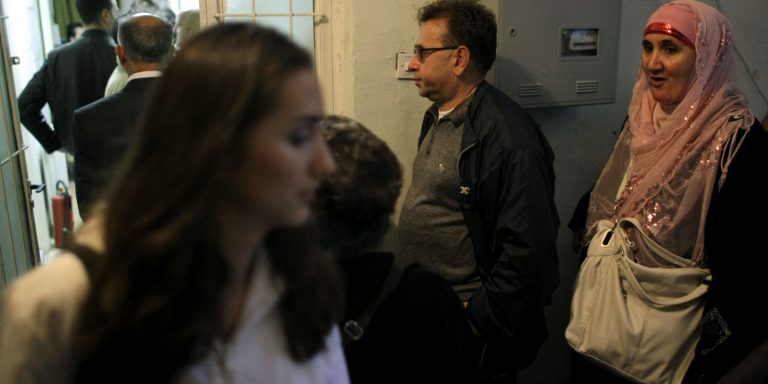INTELBRIEF
November 21, 2018
IntelBrief: The Persistence of Artificial Divisions in the Balkans

- More than two decades after the official end of the wars in the Balkans, ethnic divisions still define the political landscape of Bosnia and Herzegovina.
- While combat subsided in the mid-1990s, the country remains as divided as ever, particularly along religious and ethnic lines, with little hope for progress.
- As current leaders stir nationalistic fervor for short-term gain, the negative results of such divisive policies and rhetoric are generational in nature.
- In terms of embracing cooperation, equality, and diversity, many countries, the U.S. among them, are now regressing.
.
Hardened borders have enjoyed somewhat of a resurgence over the last several years, as a general trend of anti-globalization and anti-globalism sweep through the West, ushering in a tide of fervent nationalism. In deeply-divided societies and countries like Bosnia and Herzegovina, these trends reinforce existing divisions and spark new tensions. Centrifugal forces like religion, ethnicity and nationalism can be destructive to the social fabric of places like Bosnia and Herzegovina, Israel and Palestine, Greek and Turkish Cyprus, Northern Ireland, and many other countries and regions that have experienced long bouts of civil war and ethnic or religious violence. The current trend of a rising and aggressive nationalism—even when thinly veiled as patriotism—threatens to exacerbate existing cleavages and potentially create new ones. The consequences of such a trend is passed along to the next generation, which repeats the cycle of violence and demonization of ‘the other.’ Once the divisions move past rhetoric and are enshrined in policy (often exclusionary to the minority group) it can become exceedingly difficult to reverse that damage, one of the factors contributing to the long duration of intrastate conflicts.
A November 19, 2018 article in the New York Times shows how long the half-life of ethnic divisions can be. Appropriately entitled ‘In Bosnia, Entrenched Ethnic Divisions Are a Warning to the World,’ the article looks at how the social fissures plaguing Bosnia and Herzegovina are worsening, many years after the armed fighting subsided. The reality of a Bosnian Muslim fire brigade and a Catholic Croat fire brigade only responding to calls from their respective ‘side’ is a microcosm regularly replicated throughout the divided country. At the heart of the persistent and deepening division is ‘ethno-nationalism,’ in which the ‘nation’ is defined not by common ideals or aspirations, but rather by ethnicity. This is a form of nationalism often promoted by individuals including Steve Bannon, a former advisor to President Trump, who has declared himself a proud nationalist, in what some have referred to as a toxic conflation of nationalism with patriotism.
As noted in the Times article, the divisions that were encouraged and exploited by leaders in Bosnia have persisted long after the end of the fighting and the imprisonment of some of the conflict’s most notorious war criminals. The Dayton Accords were designed as a negotiated political settlement to provide time in which the divisions could be bridged, although these divisions have become permanent schisms. The country is divided in three: three ethnicities that are not remarkably different—Bosniaks, Croats and Serbs; and three religions—Catholic Croats, Muslim Bosniaks and Orthodox Serbs. Most of the societal divisions are now unofficial, in some ways more troublesome and persistent, especially as the divisions have become internalized and socialized.
Bosnia, and other places with persistent artificial divisions that are prone to exploitation for political reasons, serve as an important reminder that the rhetoric of prominent figures and politicians can have outsized effects. The current social and political environment in the U.S. is highly partisan and tribal. In the main, the siren song of blame shifting, finger pointing and casting aspersions on ‘the other’ is, unfortunately, a proven method of igniting passion and consolidating political power, however myopic this strategy might be over the long term. The ethno-nationalism of endless campaign rallies eventually seeps into all manner of government policies, from immigration to foreign aid, domestic elections and foreign trade. As the U.S. celebrates Thanksgiving, it comes to the communal table as an increasingly divided family, with an urgent need for leadership at every level to work towards unity and common purpose and the founding ideals this great nation was founded upon.
.
For tailored research and analysis, please contact: info@thesoufancenter.org
[video width="960" height="540" mp4="https://thesoufancenter.org/wp-content/uploads/2018/11/IB-1121.mp4" poster="https://thesoufancenter.org/wp-content/uploads/2018/11/AP_10100309807.jpg"][/video]